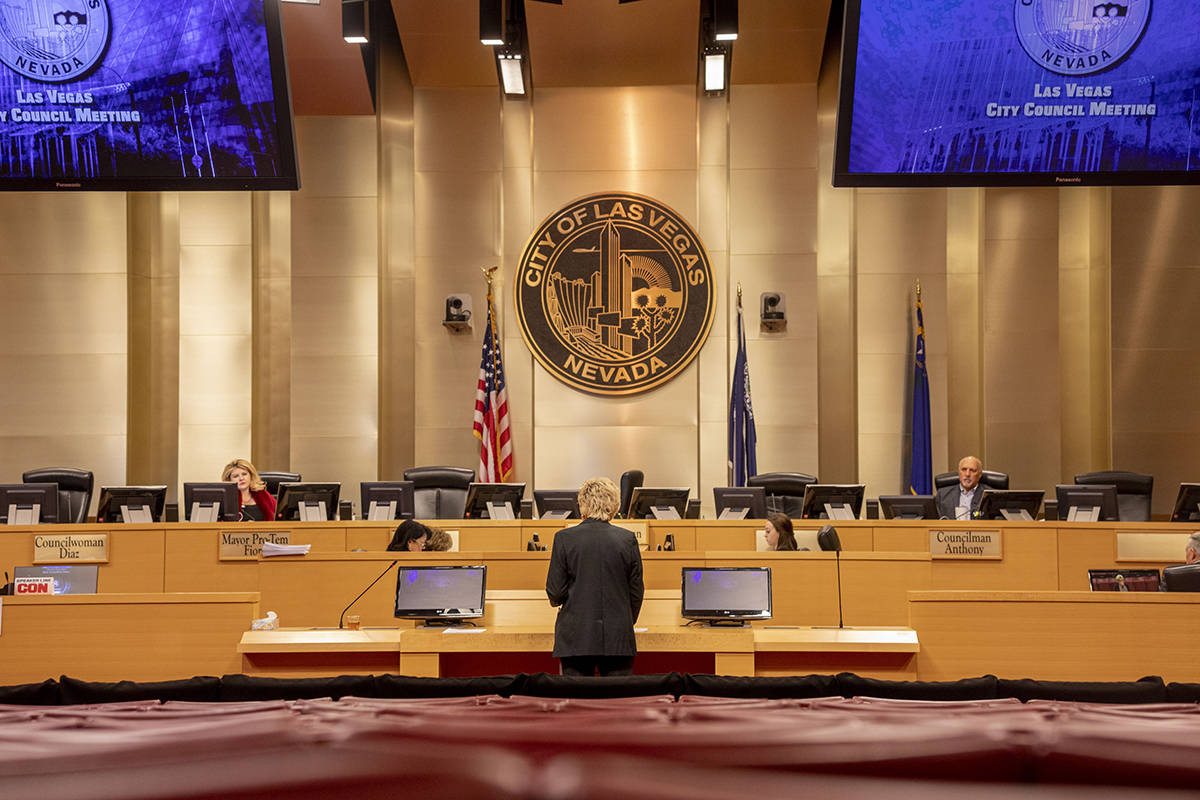Federal money, concessions sought to close Las Vegas budget gap
Lacking the reserves to fill a projected $147 million budget shortfall over the next 16 months, Las Vegas city officials are looking to federal funding and employee concessions to deal with perhaps the worst financial crisis in its history, City Manager Scott Adams said Wednesday.
The coronavirus pandemic has beaten the city worse and more suddenly than the Great Recession a decade ago, when gradual economic setbacks left it with a $100 million deficit.
“We are in the midst of the most serious fiscal crisis I think the city of Las Vegas has ever faced,” Adams told the City Council.
With only $90 million in usable reserves and a budget shortfall that is estimated to climb to $200 million through fiscal year 2022, the city’s strategy to avoid running out of cash by January is twofold: dipping into federal coronavirus relief funding and asking employees to concede 6 percent in salaries and benefits.
But while federal relief is expected to assist in weathering the storm, a chasm has already emerged between elected leaders on how it will be spent and to what degree, if any, it will support community services.
Las Vegas was recently allocated about $119 million in federal CARES Act funding for spending related to the emergency. Adams said he was “very pleased” with the amount, despite it being on the low end of the city’s earlier projections.
“We believe it will probably be very helpful through fiscal year 21 in maintaining service levels and employment,” he said.
The city notified its collective bargaining units last week that it was contemplating laying off about 200 employees in order to save $19 million if needed to balance the budget, but Adams believed that the relatively “modest” 6 percent concession could avoid layoffs.
He also said the city believed the intent of the legislation that authorized CARES Act funding was to direct the dollars to local and state governments to support the pandemic’s impact on governments between March 1 and Dec. 30, including costs to public safety.
Other funding mechanisms in that bill, and subsequent others, were meant to be directed toward community resources, according to Adams.
“We’re going to be looking at those (other funding mechanisms) to try to access those so that we can get those dollars out in the community to help businesses, to do testing and do all the things that are going to be necessary as we reopen,” he said.
But Clark County Commission Chairwoman Marilyn Kirkpatrick said Tuesday that county lawmakers expected the city would use its $119 million direct allotment, in part, to support economic development, testing and some regional services.
And Councilwoman Olivia Diaz on Wednesday warned against Adams’ recommendation of using CARES Act funding to offset impacts to the city and then, only to the extent there are dollars left over, pushing it out to the community. Instead she advocated for striking a balance between repairing city finances and boosting community programs.
Diaz suggested using funds to help businesses overhaul sanitation standards, facilitate distance learning by improving technology, and provide meals to the elderly and other vulnerable populations.
“I think that there is room for us to do more for constituents that will really be severely impacted and negatively impacted,” she said.
City officials have yet to publicly present a tentative spending plan for the new fiscal year that starts July 1.
Contact Shea Johnson at sjohnson@reviewjournal.com or 702-383-0272. Follow @Shea_LVRJ on Twitter.











































